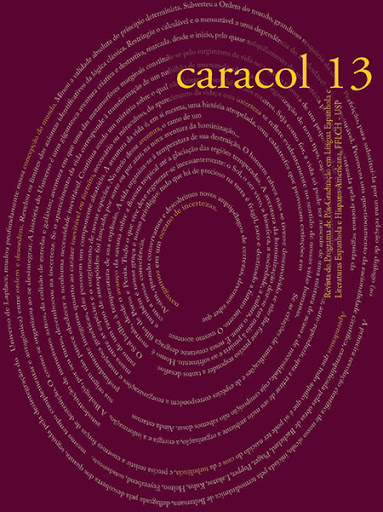DICT and teachers’ education: expanding classroom limits, critical thinking and autonomy
DOI:
https://doi.org/10.11606/issn.2317-9651.v0i13p102-134Keywords:
Teacher education, DICT, digital literacies, critical awareness, autonomy.Abstract
This paper presents some reflections about the experiences of using Digital Information and Communication Technologies (DICT) in the Bachelor’s Degree in Portuguese and Spanish Language and Literature (Escola de Filosofia, Letras e Ciências Humanas, from the Universidade Federal de São Paulo). These reflections arose from actions performed by some professors who aimed at providing undergraduate students with practical experiences and theoretical reflections that can offer them a more consistent preparation to deal with the contemporary society’s demands (M. Freire, 2009). The authors believe that teacher education must include the development of reflective and critical capacity (Freire, 1979; Dewey 1938/1963; Schön, 1992), as well as the perspectives for the use of DICT teaching as outlined by Buzato (2006, 2009), Valente and Silva (2006) and Masetto (2000). This paper discourses about the mistakes, achievements and adjustments of the experiences, and their impact on the undergraduate students and professors.
Downloads
References
Brasil. Parâmetros Curriculares – 3º e 4º Ciclos do Ensino Fundamental – 6ª a 9ª séries. 1998. Disponível em: http://www.cpt.com.br/pcn/pcn-parametroscurriculares-nacionais-do-6-ao-9-ano.
Brasil. Parâmetros Curriculares Nacionais – Ensino Médio. 2000. Disponível em: http://portal.mec.gov.br/seb/arquivos/pdf/blegais.pdf.
Brasil. Orientações Curriculares para o Ensino Médio. Volume 1: Linguagens, Código e suas Tecnologias. 2006. Disponível em: http://portal.mec.gov.br/seb/arquivos/pdf/book_volume_01_internet.pdf.
Buzato, Marcelo El Khouri. “Letramentos Digitais e Formação de Professores”. In: Anais do III Congresso Ibero-Americano Educarede. São Paulo: CENPEC, 2006, 81-86.
Buzato, Marcelo El Khouri. “Letramento e inclusão: do Estado Nação a era das TIC”. In: Revista DELTA [online], vol.25, n.1. Sao Paulo: jan-jun/2009, 01-38.
Dewey, John. Experience and Education. New York: Collier Books. 1938/1963.
Foglia, Graciela; Martin, Ivan; Gutierrez Bottaro, Silvia Etel. “Entre a dor e a delícia: a implantação do curso de Letras/Espanhol na Universidade Federal de São Paulo”. Revista Eletrônica do Geppele – Grupo de Estudos e Pesquisas sobre Práticas de Ensino e Formação de Professores de Língua Espanhola, Ano 01 – Vol. I – Edição Nº 2, Fortaleza: nov. 2013/mai. 2014, 48-63.
Freire, Maximina Maria. “Formação tecnológica de professores: problematizando, refletindo, buscando...”. In: Soto, Ucy; Mayrink, Monica Ferreira; Gregolin, Isadora Valencise. Linguagem, educação e virtualidade: experiências e reflexões. São Paulo: Editora Unesp – Cultura Acadêmica, 2009.
Freire, Paulo. Conscientização: Teoria e prática da libertação – uma introdução ao pensamento de Paulo Freire. São Paulo: Editora Moraes, 1980.
Freire, Paulo. Pedagogia da Autonomia: saberes necessários à prática educativa. São Paulo: Paz e Terra, 1996.
Kenski, Vani Moneira. Educação e Tecnologias: o novo ritmo da informação. Campinas: Editora Papirus, 2012.
Leffa, Vilson J. “Interação virtual versus interação face a face: o jogo de presenças e ausências”. In: Congresso Internacional de Linguagem e Interação. São Leopoldo: Unisinos, agosto de 2005.
Masetto, Marcos Tarciso. Mediação Pedagógica e o uso da Tecnologia. In: Moran, Jose Manuel; Masetto, Marcos Tarciso; Behrens, Marilda Aparecida. Novas tecnologias e mediação pedagógica. Campinas: Papirus, 2012.
Oliveira, Rosangela A. Dantas de. “Reflexiones acerca de la formación docente en la carrera de Letras – Español de la Unifesp – campus Guarulhos/SP”. Actas del VIII Congreso Iberoamericano de Docencia Universitaria y de Nivel Superior. Rosario: Facultad de Humanidades y Artes (UNR), 2014, 673-680. Disponível em: http://www.fhumyar.unr.edu.ar/AIDU/LIBRO%20DE%20ACTAS%20
CONGRESO.pdf.
Serrani, Silvana. Discurso e cultura na aula de língua. Campinas: Pontes, 2005.
Schon, Donald A. The theories of inquiry: Dewey’s legacy to education. Curriculum Inquiry. v.22:2, p. 119-139, 1992.
Downloads
Published
Issue
Section
License
Copyright (c) 2017 Rosângela Aparecida Dantas de Oliveira, Andreia dos Santos Menezes, Greice de Nóbrega e Sousa

This work is licensed under a Creative Commons Attribution-NonCommercial 4.0 International License.
Authors who publish in this journal agree to the following terms:
- Authors retain copyright and grant the journal the right of first publication, with the work simultaneously licensed under a Creative Commons Attribution License, which permits the dissemination of the work with recognition of authorship and initial publication in this journal.
- Authors are allowed to enter into additional contracts separately for non-exclusive use of the version of the work published in this journal (such as publication in an institutional repository or as a book chapter), with recognition of authorship and initial publication in this journal.
- Authors are allowed and encouraged to publish and distribute their work online (e.g., in institutional repositories or on their personal page) at any point before or during the editorial process, as this can generate productive changes, as well as increasing the impact and citation of the published work (see The effect of open access…).




